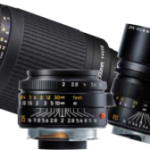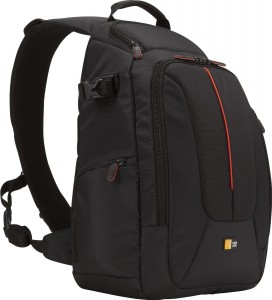Taking Care of Camera Equipment
Taking time and caring for your camera equipment WILL reward you:
- The camera will always be ready to take THAT picture!
- Your camera will last you for many years
- You could even be able to trade the camera in to upgrade to a more sophisticated model; always a bonus once you get the “bug” to take pictures
The points here all refer to cameras and related equipment in general. Although I am generally referring to digital equipment, film camera equipment and film also benefits from good care practices!
When using a compact digital camera, because of their size, you can always have your camera with you to capture those photographic moments that might otherwise be missed. Carrying an item of equipment around can mean it may get regular knocks and bumps; this kind of thing can reduce both the camera’s working life and value.
Camera Cases
Most cameras, lenses and other equipment are sold with cases. If the case provided is not strong and suitably padded (or not even supplied), invest in a protective case that is properly designed, padded and shock proof to offer some protection from accidental knocks. Make sure the case fits the camera. A case that is too small could cause buttons to be pressed, which will discharge the batteries as well as friction effects against other contents; the more pockets available for storage the better! A case that is too large will not be as effective in protecting the camera. A snug fit, ideally made for the particular model of camera you own would be well worth the investment. A bit of personal research with this should be VERY beneficial in the long run.
Camera Lenses
The lens is probably the most important component on your camera and as such it requires particular care. Keep fingers, food and other substances away from the lens and always clean the camera lens gently and carefully with a proper lens cleaning brush or cloth. It is important not to rub a dirty lens as this can cause scratches and damage which impairs the photograph quality. If your camera is supplied with a lens cover, use it. Many point and shoot cameras have built in lens cover mechanisms that close automatically when the camera is switched off, which makes life a little easier.
With more expensive interchangeable lenses, try and make a habit of using a UV filter as a protective layer on the front of the lens. They are relatively inexpensive when you take into account the cost of a damaged lens. The filter is also designed to absorb ultra-violet (UV) radiation and can also be used to improve clarity for landscapes, especially mountain and ocean views.
======================================
If using a camera with interchangeable lenses – MAKE sure you use caps for the camera body and lens. The body caps are to prevent dust and contamination of the camera body and the lens caps protect the lens opticals and electrical contacts. If you bought camera equipment privately or through any source other than a camera supplier and the caps etc are not supplied – get some elsewhere. The internal workings, especially the “image” sensor, are VERY prone to damage with dust… Be AWARE!!
======================================
Temperature and Humidity
Avoid storing your camera in extremes of temperatures or anywhere damp. You may find little bags of silica gel in the original packaging for your digital camera – keep these and continue to use them. If you leave your camera in the car, do be sure not to expose it to direct sunlight for long periods. Even though film is less popular today, beware as film can also be damaged by heat and moisture. But also consider on any camera there are electronic components which will not improve for being overheated or exposed to moisture.
Rain and Sand and Cameras!
Two elements that can cause problems with camera equipment are the rain and sand, however they CAN also be used to great effect in a picture – just be sure to take some basic precautions to prevent damage.
Rain – and water in general is obviously not a desirable substance to immerse camera equipment in, but some picture results in good light conditions can be quite spectacular. Take sensible waterproofing steps – umbrellas, plastic bags or even waterproof enclosures, depending on your needs. Don’t discount taking pictures in the rain – just be sensible!
Sand – as with water – be careful – not afraid! Never wipe sand and dust off a lens with clothing or cloth. Use a blower or brush to avoid scratches. Protect the front lens element with a screw-on UV or skylight filter. In doing this the expensive lens is less likely to sustain damage.
Camera Straps
One thing that I ought to just add here – the camera strap is there for a reason! Use it at a suitable length to suit you to hang the camera around your neck – if you have a compact camera you will most likely have a wrist strap. The idea is to prevent dropping the camera – it might sound a little simplistic and obvious, but cameras get dropped, costing money and that’s just a fact of life! There will be times when it may be impractical to use a strap, but I thought it just worth a mention!!
Storage
If your camera is to be stored for a long period, do remember to remove the batteries. The last thing you want is for the corrosive contents of a battery to leak out and ruin the mechanisms within your camera.
Be aware that any strong magnetic field can affect the various types of memory card used with digital cameras. Many pieces of standard household equipment create magnetic fields – even something as seemingly innocuous as hi-fi speakers – give some thought to where you store your camera and associated equipment. ALWAYS keep your memory cards in their plastic holders and make a point of buying the best you can afford…it WILL pay off in the end.
Caring for your camera equipment is not difficult nor need it be expensive. A robust case and a proper lens cleaning brush or cloth and fluid and a little thought is all that’s required.



